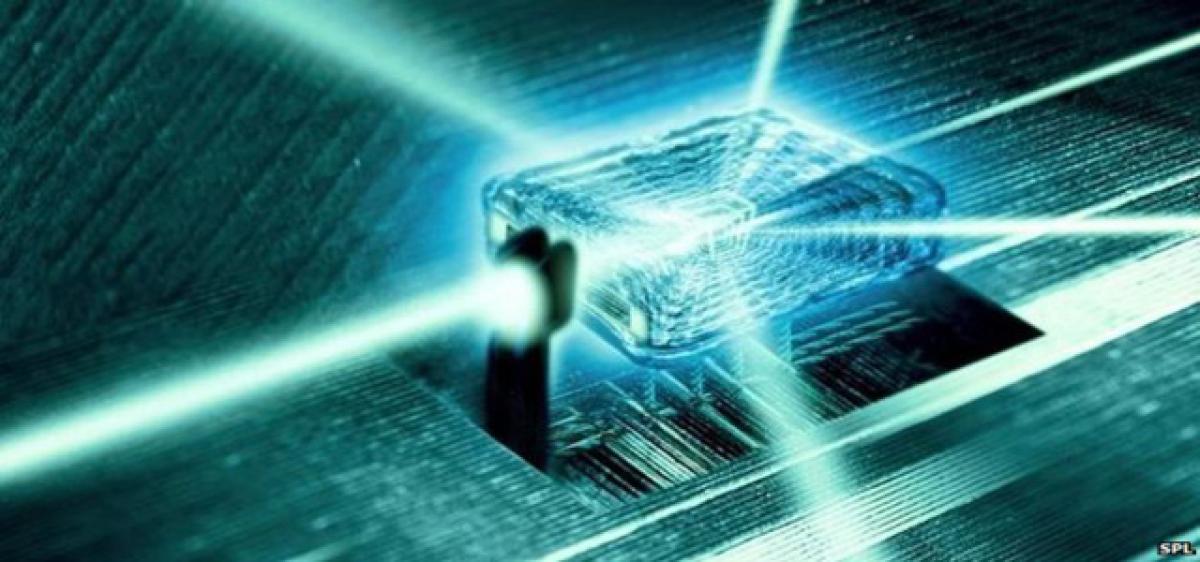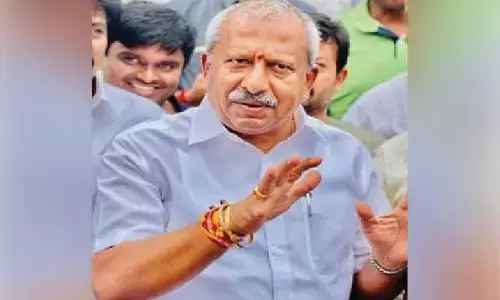Wait gets longer for quantum computing

Commercial production of quantum computers that would process information much faster than today\'s supercomputers is still some time away – industry has to first solve hardware issues in quantum technology, according to an expert.
Commercial production of quantum computers that would process information much faster than today's supercomputers is still some time away – industry has to first solve hardware issues in quantum technology, according to an expert.
Quantum theory is about nature at its smallest scale and energy levels and describes the behaviour of subatomic particles like electrons, protons, neutrons and photons.
In silicon chips of classical computers, the unit of data is rendered in one of two states – 0 or 1 pertaining to true/false or yes/no state. However, in quantum theory, data could simultaneously exist in both states, holding exponentially more information. The unit, or "bit" in regular computing, becomes "qubit" in quantum theory, which can be either 0 or 1, or in superposition of them both at the same time.
This means that where a normal computer makes calculations sequentially, one at a time, a quantum computer would be able to process information simultaneously, thus making it much more powerful.
The computing power of a quantum computer grows exponentially with the number of quantum bits that can be manipulated, explains Alexey Kavokin of the Russian Quantum Centre (RQC) and Professor at the University of Southampton in the UK.
However, while the manipulation of multi-particle entanglement is at the core of quantum computing, the physical implementation of qubits is difficult simply because quantum phenomena are hard to observe in everyday life, Kavokin told IANS on the sidelines of the recently concluded global conference on quantum technologies organised by RQC.
Building a quantum computer requires a physical qubit that is well isolated from the environment, he said, adding that stabilising it in a physical platform is the key.
"There is a hardware problem to be resolved before the world can realise quantum computing on an industrial scale," Kavokin said, noting the difficulties in the way of realising the kind of future scenario brilliantly depicted in the sci-fi thriller "Minority Report" (2002), directed by Steven Spielberg.
The movie details a future technology that makes it possible for cops to catch criminals before a crime is committed. "Researchers are currently seeking platforms that permit manipulating quantum states in room temperature conditions.
Unless this hardware problem is solved, mass quantum computing is still far away," he said. Researchers have found that some qubits, such as those made from silicon atoms, only work at very low temperatures, near absolute zero or zero degree Kelvin (-273.15 degree centigrade).
The physical systems to manipulate qubits, on which most scientists are working, would be based on single photons, ultra-cold atoms and superconducting circuits. "Quantum science is a new domain... cold atoms, superconducting qubits... no industry has these at the current juncture," Kavokin said.
Quantum mechanics has led to devices like broadband optical fibres and smartphone displays which work using photons – the smallest indivisible quanta or unit of light. Photons have both a wave-like property and they also behave like particles – first explained by Albert Einstein.
Owing to the enormous potential of quantum computers, companies like Google, Microsoft and IBM have invested massively in quantum computing research.
Working at the photon level, quantum mechanics, at some stage, is also expected to enable supersecure communication. The Russians have come up with a hack-proof, secure quantum communications.
Total information security as guaranteed by quantum communications has a flip side and poses a philosophical dilemma, according to the RQC Chairman, Russian-born Singaporean entrepreneur Serguei Beloussov, who is also the Co-founder and Chairman of global data protection company Acronis.
"The world is not prepared for total privacy. Most governments the world over control their populations through control over information. So, if information becomes completely private, they would lose this control," Beloussov, also an MIPT alumnus, said. Therein lies the rub for the new technology.
Exponential speeds
- Quantum theory is about nature at its smallest scale and energy levels
- It describes behaviour of subatomic particles like electrons, protons, neutrons and photons.
- In silicon chips of classical computers, the unit of data is rendered in one of two states – 0 or 1 pertaining to true/false or yes/no state
- However, in quantum theory, data could simultaneously exist in both states, holding exponentially more information. The unit, or "bit" in regular computing, becomes "qubit" in quantum theory, which can be either 0 or 1, or in superposition of them both at the same time
By Biswajit Choudhury








